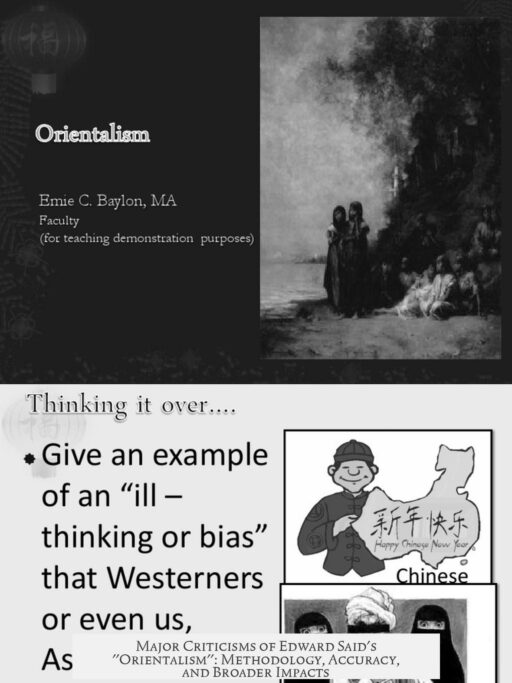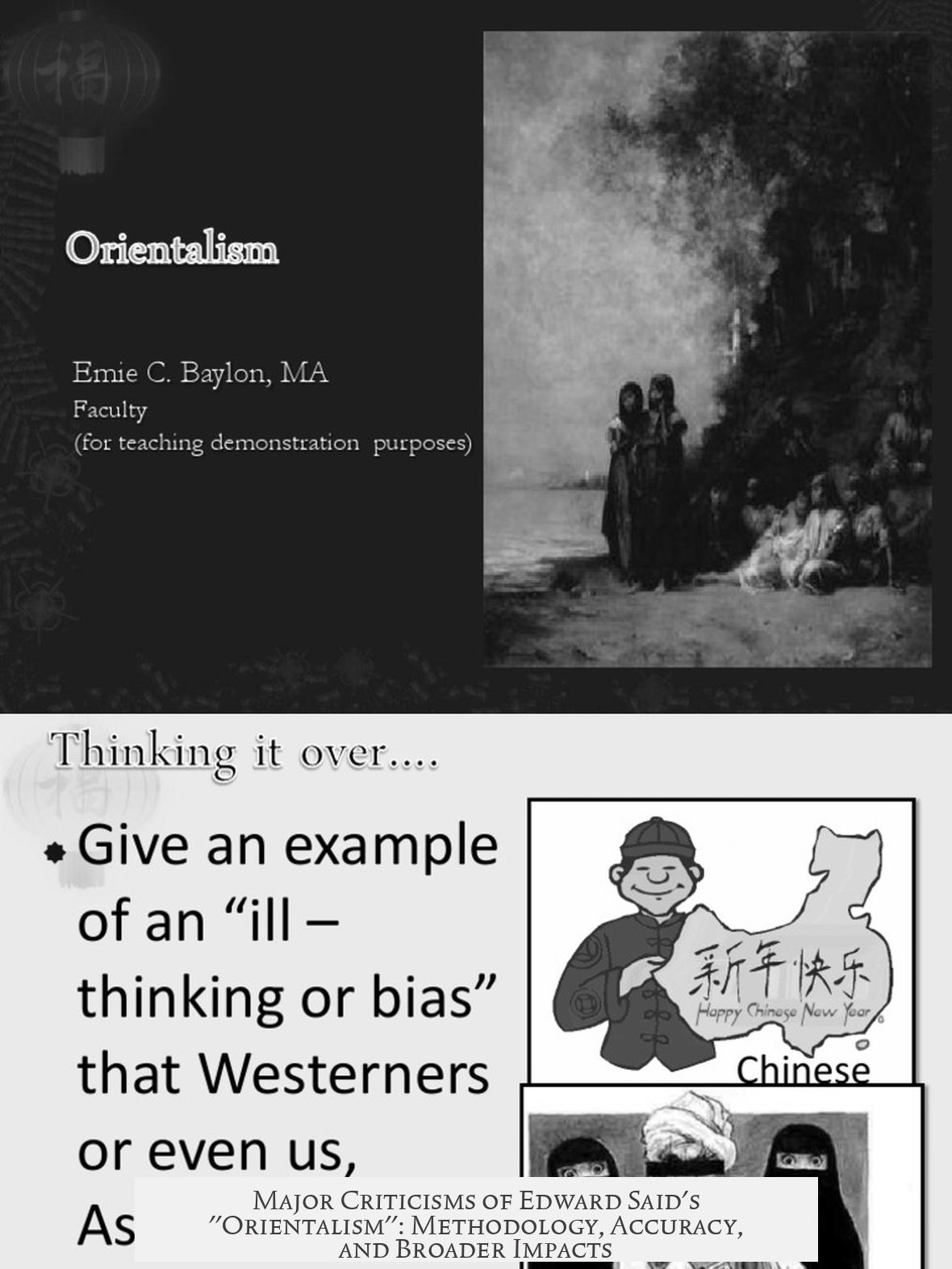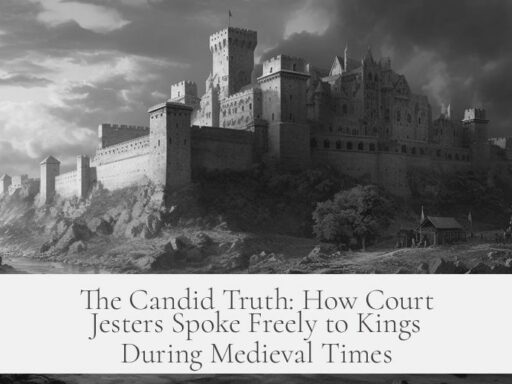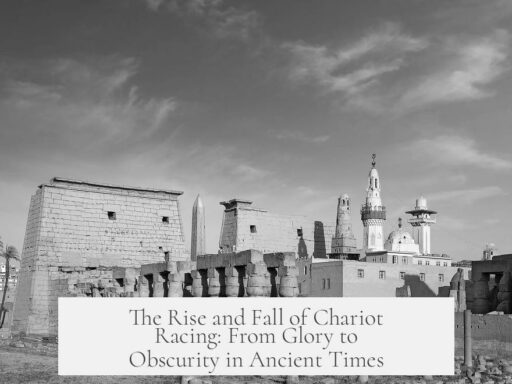Edward Said’s Orientalism faces several major criticisms and flaws, particularly concerning its methodology, historical accuracy, over-generalization, and theoretical basis. These critiques focus on how Said constructed his arguments and the implications of his analysis.
First, Said’s methodology draws significant critique for its selective use of sources. Many accuse him of cherry-picking Western authors, mostly British and French, to link the rise of Orientalism directly to colonialism. Critics argue that Said ignores intellectual traditions from non-colonizing regions and overlooks earlier scholarship on the East, thus biasing his argument. Instead of focusing on individual texts, Said aims to highlight a collective Western framework that helped justify imperialism. However, this method leaves Orientalism vulnerable to accusations of incomplete or skewed evidence.
Second, the historical accuracy of Said’s claims is questioned. He largely omits pre-colonial and seventeenth-century Western studies of the Orient when no colonial ambitions existed. Critics claim this oversight weakens his position. Said counters that while knowledge about the East existed before colonialism, a distinct colonial justification narrative emerged with European sea-faring powers and joint-stock companies in the late eighteenth century. This narrative specifically framed the Orient in ways facilitating control and dominance, a nuance sometimes missed by opponents.
Third, Orientalism tends to over-generalize and create simplistic binaries. Said depicts the Orient as mystical, ancient, static, and feminine, while the Occident appears modern, progressive, and masculine. Such binary oppositions ignore the immense diversity across Asian and Middle Eastern cultures and histories. This reductionist view silences many Eastern voices by representing them only through a Western lens, leading to essentialist stereotypes rather than nuanced understanding.
Lastly, Said’s theoretical approach heavily relies on Michel Foucault’s concept of knowledge-power networks. Critics note that Foucault was not primarily a historian, and his methodology may not suit detailed historical analysis. Said’s work, like Foucault’s, functions more as a conceptual critique than a traditional historical account. This ambitious theoretical wager invites debate on its appropriate application and limits in capturing complex historical realities.
| Major Criticism | Description |
|---|---|
| Methodological Issues | Selective use of sources, ignoring broader intellectual contexts and non-Western scholars. |
| Historical Oversights | Neglects pre-colonial Eastern studies and early European scholarship predating imperialism. |
| Over-Generalization | Creates binary oppositions that simplify vast cultural differences and silence diverse voices. |
| Theoretical Framework | Relies on Foucauldian analysis, which may not align with conventional historical methods. |
- Said’s focus is on a collective Western mindset reinforcing colonialism rather than individual texts.
- He frames Orientalism as a discourse emerging alongside European colonial expansion.
- Orientalism’s binary oppositions simplify and reduce complex cultures into stereotypes.
- The Foucauldian lens shapes his critique but draws debate over historical rigor.
What Are The Major Criticisms/Flaws Of Edward Said’s Orientalism?
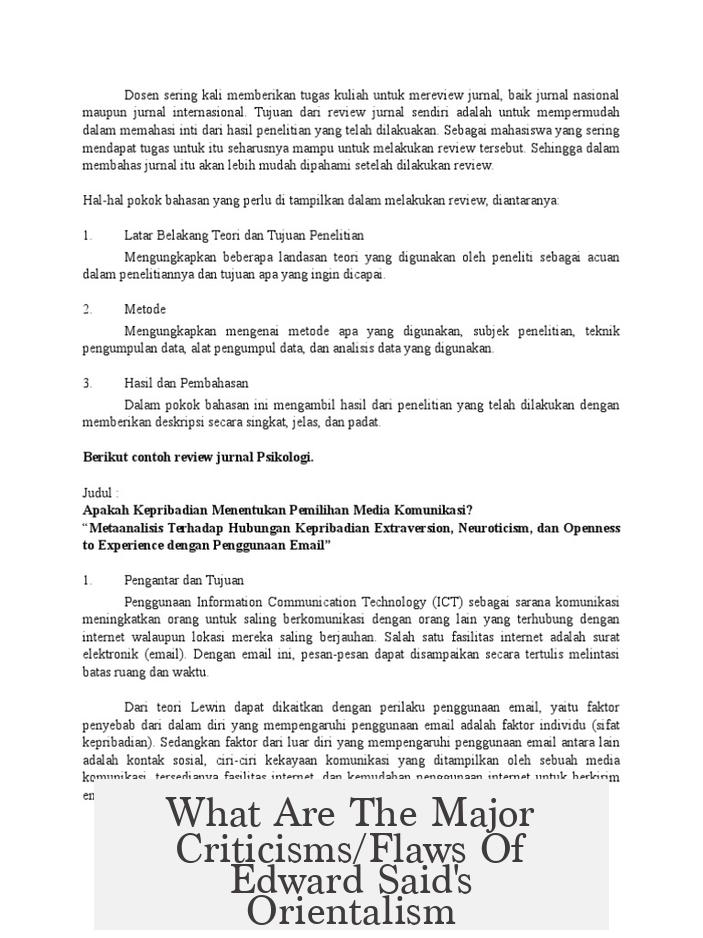
Edward Said’s Orientalism boldly critiques Western perceptions of the East, but it’s not without controversy. The book reshaped postcolonial studies but also sparked intense debates. What are its major flaws? Let’s dive deep and uncover the criticisms that have kept scholars arguing for decades.
1. Methodological Criticisms and Cherry-Picking of Authors
Many critics take aim at Said’s methodology. They claim he cherry-picks examples to build his case. But what exactly does that mean? Imagine picking only the juiciest apples from one tree to prove an orchard is bad — that’s the accusation against Said.
He focuses primarily on British and French colonial writers from the late eighteenth and early nineteenth centuries, conveniently ignoring similar Orientalist attitudes from non-colonizing regions. Why? Said seems to want to tie intellectual trends directly to imperialism. This selective focus appears dubious to some, making critics argue that his argument isn’t balanced.
Still, Said’s defenders point out that his goal isn’t to analyze every single author in the Orient but to highlight a way of thinking — a collective mindset that helped justify colonialism. The criticism here boils down to whether such focused examples represent a wider truth or mere coincidence.
2. Historical Accuracy and Ignoring Pre-Colonial Scholarship
Here’s an eyebrow-raiser: Said largely overlooks early Western studies of the East that date back to the seventeenth century. These were created before Western powers had the means or intent to colonize the Middle East.
Does this weaken his argument? Critics say yes. They argue that Orientalist views existed long before imperialism and in contexts unrelated to colonial dominance. So, Said’s strict tying of Orientalism to colonialism might oversimplify history.
However, Said counters this by emphasizing a qualitative shift with the rise of sea-faring joint-stock companies in the colonial era. According to him, this period introduced a new kind of knowledge about the East — one explicitly designed to justify domination and exploitation.
3. Over-Generalization and Binary Oppositions
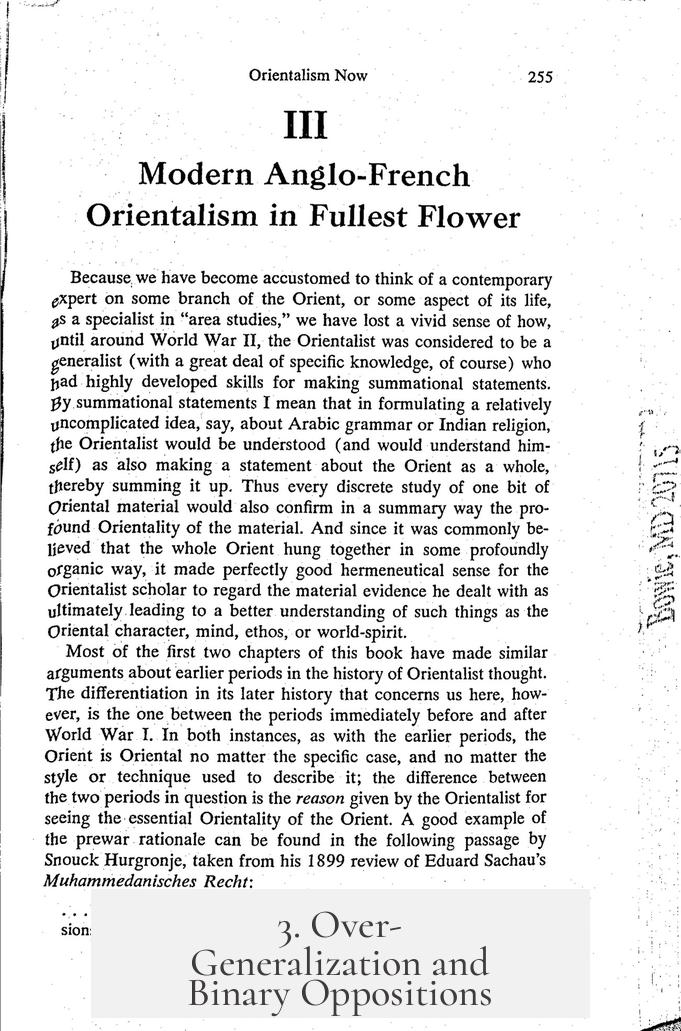
Another major criticism revolves around generalization. Said draws a sharp line between “the West” (Occident) and “the East” (Orient), portraying them almost like characters in a story. He describes the Orient as mystical, ancient, feminine, and unchanging. Meanwhile, the West appears modern, masculine, and progressive.
But Asia, the “Orient,” is far from monolithic. It’s home to countless cultures, languages, and histories. This sweeping generalization glosses over the diversity and complexity of real people and places. Critics worry this creates a new kind of reductionism — one that denies the East its own voice by speaking for it.
Is this binary too neat for such a messy reality? It’s a good question. Critics argue it risks perpetuating stereotypes even as it critiques them.
4. Application of Foucault and Historical Analysis
Said’s approach partially leans on the philosophy of Michel Foucault. He examines how certain “knowledge formations” become dominant and seem natural over time. But Foucault himself wasn’t trained as a historian, which means his methods can clash with traditional historical analysis.
This connection exposes another vulnerability in Said’s work. Critics say Said’s framework isn’t “historical” in the usual sense. It’s a bold theoretical move rather than a straightforward account of events.
This style places a “wager” on the reader: accept this audacious lens or dismiss the argument. Said’s supporters argue this is a strength, not a flaw. It prompts us to question what we take as historical “truth.” However, for people expecting a conventional historic account, it can feel shaky.
Bringing It All Together: Is Orientalism Still Worth Reading?
Despite these criticisms, Orientalism remains indispensable for understanding Western representations of the East. While the flaws highlight important limitations, they don’t unravel the book’s core insight: that knowledge and power link deeply, especially in imperial contexts.
The biggest takeaway is this: representations of cultures are never neutral. If anything, Said’s text invites a clearer view of how ideas shape politics and vice versa.
For example, when a modern company markets “exotic” goods, echoes of Orientalism persist, affecting perception and politics today. Recognizing this helps us engage critically instead of passively consuming stereotypes.
So, What Can You Do?
- Read Widely: Don’t rely on Said alone. Explore other scholars and viewpoints, especially from Eastern perspectives.
- Be Critical: Question sweeping generalizations. Remember that cultures are diverse and ever-changing.
- Understand Context: Recognize the difference between historical account and theoretical critique.
- Look Beyond the Binary: Challenge simple oppositions and seek stories that embrace complexity.
Orientalism remains a conversation starter. The critiques highlight that no theory is perfect or beyond scrutiny. Yet, its legacy fosters deeper reflection on how we see the world.
Have you come across Orientalism in your studies or travels? How do you spot biases in cultural representations today? Share your thoughts and keep the discussion alive.
What is the main methodological criticism against Edward Said’s Orientalism?
Said is accused of cherry-picking authors to support his view. Critics argue he selectively uses British and French sources, ignoring others from non-colonizing countries. This raises questions about the representativeness of his examples.
Why do some scholars say Said ignores pre-colonial scholarship?
Critics note that Orientalist thought existed before European imperialism. Seventeenth-century research on the East predates colonial ambitions, suggesting Said overlooks early studies that contradict his timeline.
How does Orientalism overgeneralize the relationship between East and West?
It creates a strict binary, depicting the East as static and exotic, and the West as modern. This lumps diverse Asian cultures together and silences their individual voices.
What are the issues related to Said’s use of Foucault’s framework?
Said applies Foucault’s ideas on knowledge and power but is critiqued for treating historical analysis like Foucault, who was not a historian. This approach challenges conventional historical methods.
Does Said’s methodology weaken the overall argument of Orientalism?
Some argue his use of selective examples and broad generalizations undermines the work. Others say the collection of examples reveals broader patterns, making the methodology still valuable for understanding colonial discourse.
